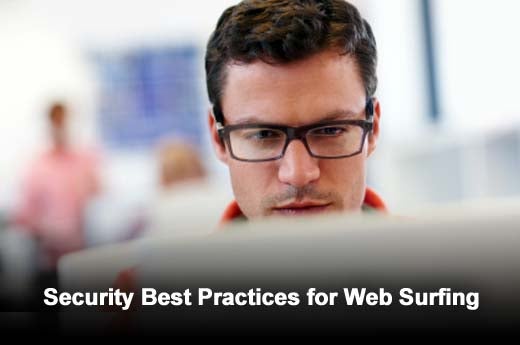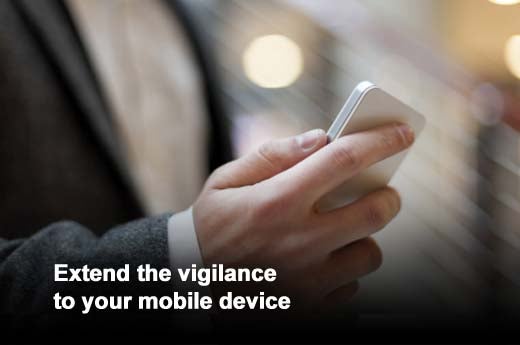You’ve heard it before: Create stronger, better, more unique passwords. But it doesn’t stop there. Courtesy of AppRiver, we bring you five must-heed tips to help your users securely conduct their daily Web activity from app downloads to bill pay, Web browsing, email checking and more.
Click through for five must-heed best practices users should employ for safe Web browsing, as identified by AppRiver.
- Before entering sensitive information into a website, look for the security padlock symbol. The padlock is one way of checking that a website is safe and indicates that the information you submit is secure.
- Double-click the icon. It will display the certificate information for the page you are viewing to guarantee that you are on a safe, secure website. Make sure the certificate is current and issued to the same company you are visiting.
- Don’t be fooled by a padlock that appears on the Web page itself because it is possible for a cyber criminal to copy the image. So, double check that the padlock is in the window frame of the browser itself.
- After validating the padlock, you can also check the text before the website name in the address bar. The “https” is another indication that the page you are viewing is secure.
- Pay attention to the Web address. Check the address and if you click on a link, look to make sure that the address stayed the same. If it has changed, then it has taken you to a fraudulent Web address where cyber criminals can monitor and access your information.
- The cyber criminals that now take aim at computer users en masse have become experts in social engineering or the art of manipulating people into performing a certain action. Cyber criminals are constantly coming up with new and creative ways to get you to do what they want. In most cases, that is to click on a malicious link or respond to a malicious email and often leads to financial or identity loss.
- Never click on a link – or an attachment – from an unsolicited email.
Do not bank online using the same computer that your children do. A good portion of online scams and spam target today’s younger generation of Internet addicts. Chances are computers accessed by less-discerning youthful users will be infected with malware and viruses. Instead, it is wise to designate a separate PC solely for secure financial transactions.
Since attackers are attempting to take advantage of you at any angle possible, it is a good idea to take a layered approach when it comes to security. Make sure you are implementing multiple solutions such as a firewall, antivirus software, email spam filtering and Web filtering.
- Remember, the same dangers that exist on the Web (i.e., Black Hat SEO poisoning, social media, email and SMS) can also exploit a mobile device. Remain vigilant about all mobile Web surfing activity.
- Avoid downloading apps from unknown sources and instead seek out official marketplaces. If you are downloading an app from an established marketplace, learn what others are saying first about the app in the review section. Be aware of the permissions an app is asking for during install.
- Nearly all smartphones are now equipped with Wi-Fi functionality, making them highly vulnerable to attacks. There are various tools available that allow even the least talented hacker to exploit Wi-Fi hotspots and intercept Web traffic. Avoid accessing any password-protected site or one where you will give any personal information (i.e., Facebook, banking, PayPal) when connected to an unsecured Wi-Fi hotspot, such as those in a coffee shop or at the airport. Businesses should seek a Web filtering solution that will guarantee Web protection and policies remain active in such harsh environments.








